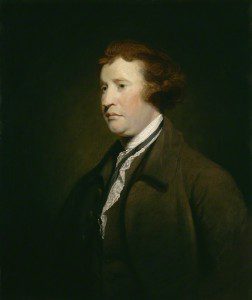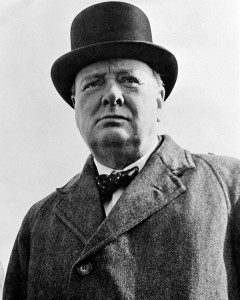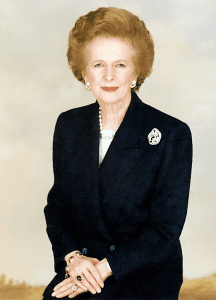“Rage and frenzy will pull down more in half an hour than prudence, deliberation, and foresight can build up in a hundred years.”
– Edmund Burke
It was 1790 and the French were still reeling. After little more than a year, the French Revolution, heralded as the truest of democracies, brought about the collapse of the monarchy, the aristocracy and the French Catholic Church. As delirious change swept the august French state, “Liberty, Equality, Fraternity” was gleefully spoken of in nearly all enlightened corners of 18th century Europe. But not in the letters of Edmund Burke. An Irishman, Whig and Member of the British Parliament, Burke found himself writing to a French aristocrat who had inquired about his opinion on this monumental event. As Edmund Burke observed the chaotic, wild-eyed dismantling of long-standing organs of the church and state, he found himself overcome by a deep sense of foreboding.
“The age of chivalry is gone. That of sophisters, economists, and calculators has succeeded; and the glory of Europe is extinguished forever…It is gone, that sensibility of principle, that chastity of honor, which felt a stain like a wound, which inspired courage whilst it mitigated ferocity, which ennobled whatever it touched…”
And before the wicked rise of Robespierre and his Reign of Terror or the militant crush of Napoleon, Burke would describe the leader who could best navigate out from the wreckage of the French state,
“A man full of warm, speculative benevolence may wish his society otherwise constituted than he finds it, but a good patriot and true politician always considers how he shall make the most of the existing materials of his country. A disposition to preserve and an ability to improve, taken together, would be my standard of a statesman.”
In short order, the French Revolution would devolve into a bloodbath of Terror and an iron gripped dictatorship to the surprise, shock and horror of many of its greatest champions. But not to Edmund Burke.
Edmund Burke had good judgment.
It was May, 1940. The British, under Prime Minister Neville Chamberlain, were engaged in a “phony war” against Adolf Hitler’s Nazi juggernaut. Satisfied that the treaty with Poland had been honored, the British and French war effort was limited to skirmishes and airdropped leaflets while the Nazi and Soviet despotisms carved up Eastern Europe…until Hitler turned West. First with Britain’s humiliating defeat in Norway, then with Nazi movement into Denmark (and impending invasions into Belgium, the Netherlands, Luxembourg and France), the British people had enough. Chamberlain would resign in shame while Winston Churchill would be elevated to the Prime Ministership.
But it was a moment of great uncertainty.
Churchill was not preferred by the King (the King actually favored Lord Halifax, who declined being put forward). Churchill’s own political position precariously depended on a Conservative party devoted to the maligned Neville Chamberlain. Further, the Conservatives distrusted Churchill because he bucked leadership and had switched parties not once, but twice. Even more, the British aristocracy had certain sympathies for Adolf Hitler who, they reasoned, could serve as a bulwark against the feared metastasis of Soviet Communism.
And if that weren’t enough, within three months, the Nazis would Blitzkrieg through and subjugate nearly all of Western Europe, including noble France (who, as we remember, was unbeaten by the Germans after four years in World War I). The German Luftwaffe stared hungrily across the English Channel hoping for the opportunity to bomb proud and recalcitrant Albion into submission. Several hundred thousand British and French army troops sat stranded on the French beaches of Dunkirk literally praying that they wouldn’t be bombed into oblivion while awaiting deliverance across the English Channel. And the United States sat uncertainly across the Atlantic having promised not to send any more American boys into foreign wars.
With all of these considerations, Winston Churchill would sit with his five man War Cabinet comprised of Conservative, Labour and Liberal leaders. He needed to decide whether to fight Hitler or to cut a deal. Immense pressure was placed upon him as his fate, the fate of his country and the fate of Western Civilization hung in the balance. What would Winston Churchill choose? It soon became clear.
“If Germany defeated [us], she would give no mercy; we should be reduced to the status of vassals and slaves forever. It would be far better that the civilization of Western Europe with all of its achievements should come to a tragic but splendid end than that [our] great democracy should linger on, stripped of all that made life worth living.”
“If this long island story of ours is to end at last, let it end only when each one of us lies choking on his own blood upon the ground.”
This was not foolish optimism or reckless bombast. Instead, it was a mix of dogged principle, ingenious calculation, and brute will to galvanize a national movement. And this national movement would serve as a nidus of moral and military resistance around which an international alliance could form to crush Adolf Hitler. Many believed it couldn’t be done, but Churchill insisted otherwise.
Winston Churchill had good judgment.
It was 1979. Conservative Margaret Thatcher assumed the mantle of Prime Minister during the decade where Great Britain was referred to as “the Sick Man of Europe”. High unemployment, strike after strike, nationalized businesses and an overall policy to “manage the decline” met Thatcher on her first day. Internationally, the Soviet Union continued to grow its military, cynically violate international human rights norms and revel in the aid it received from an apologetic, self-doubting West. The sun is setting on the West and rising elsewhere, many reasoned. It’s just the way it is, they lamented. Nonsense, insisted Thatcher.
As Margaret Thatcher stood up to entrenched domestic powers and foreign adversaries, she did so with conviction, courage and common sense (tinged with Thatcherite wit). She appealed to the human nature that aspires to meaning, to achievement, to freedom. And she succeeded. Accused at one point that her narrative was the same old story. She pointedly retorted,
“Of course it’s the same old story. Truth usually is the same old story.”
Of course.
Margaret Thatcher had good judgment.
So…
So why am I saying all of this?
Because after eight years of watching a president who’s judgment couldn’t be more troubled, more misguided, more baldly ideological, it is time for true change. After eight years of fanning the flames of class and race, snubbing international allies and appeasing enemies, and calling into question the principled edifice upon which our country won wars and righted social wrongs, it is time for true change. It is time for someone with considered principles and sound judgment to lead us again.
And Donald Trump is NOT that person.
Character matters. And it profoundly informs judgment. What have we seen in the frontrunner of the Republican presidential race? As Maya Angelou once wisely observed, “When someone shows you who they are, believe them the first time.” We have seen Donald Trump’s has character time and again. It is arrogant, vulgar and angry. It is deceptive, petulant and entitled. I do not believe this is “Trumped up” affectation. I believe this is who he is… “When someone shows you who they are, believe them the first time.” If this is who Donald Trump is, heaven help us with the type of decisions he would make.
Now, to be sure, Churchill could be arrogant, Thatcher could be caustic and Burke could get angry, but their judgment led them to see and act with a clarity. And their singular, bold vision, as history has borne out, improved the lives of millions. Without sound judgment, a leader can be bumbling, yet inconsequential. But even worse, they can be a reckless demagogue.
And while supporters would tout Trump’s success (sometimes) in business and experience hosting a reality television show, I’m not sure that automatically qualifies him as presidential timber. What’s more, I think his criticism of career politicians falls flat when you consider that Burke, Churchill and Thatcher were just that – career politicians.
Think about it. Very, very seriously.
We are just finishing a difficult and trying eight years. Let’s not make a mistake.
We need a Burke, a Churchill or a Thatcher.
Not a Trump.
————————–
Photo Credit:
-Wikipedia https://en.wikipedia.org/wiki/Edmund_Burke#/media/File:EdmundBurke1771.jpg
-Wikipedia https://commons.wikimedia.org/wiki/File:Sir_Winston_S_Churchill.jpg
-Wikipedia https://en.wikipedia.org/wiki/Margaret_Thatcher#/media/File:Margaret_Thatcher.png















